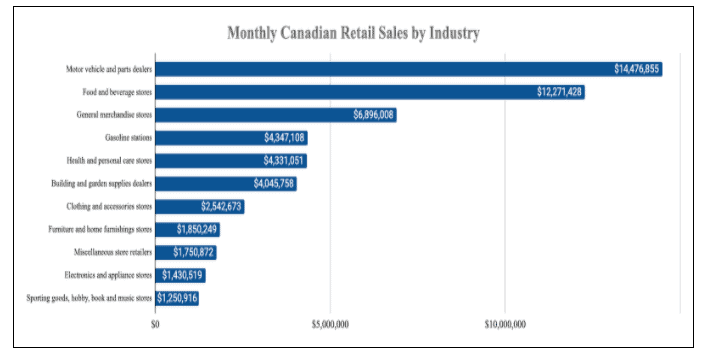Smarter Loans Inc. is not a lender. Smarter.loans is an independent comparison website that provides information on lending and financial companies in Canada. We work hard to give you the information you need to make smarter decisions about a financial company or product that you might be considering. We may receive compensation from companies that we work with for placement of their products or services on our site. While compensation arrangements may affect the order, position or placement of products & companies listed on our website, it does not influence our evaluation of those products. Please do not interpret the order in which products appear on Smarter Loans as an endorsement or recommendation from us. Our website does not feature every loan provider or financial product available in Canada. We try our best to bring you up-to-date, educational information to help you decide the best solution for your individual situation. The information and tools that we provide are free to you and should merely be used as guidance. You should always review the terms, fees, and conditions for any loan or financial product that you are considering.
Retail in Canada is big business – around $55 billion in average sales per month across the country – and this amount of money brings with it a lot of competition. Retailers of all kinds are fighting harder than ever before to stay relevant, efficient and profitable, and to this end a whole slew of providers exist to help in this endeavour.
So if you’re a retailer looking for ways to maximize your operational efficiency, we have the information you need. Let’s start with a list of some of the most recognizable and reputable retail solution providers in the country, shown in the table below. Click on any company’s name to learn more about them. And read on below to discover all the different ways these companies can help you.
Canada is home to over 230,000 physical retail establishments, and countless online stores, and together these accounted for over $615 billion in sales in 2019 alone. However, not every retailer is taking home a piece of the pie - over 25% of Canadian retailers are not profitable. Those that are profitable (or hoping to become so) are increasingly focussed on maximizing their market impact via the use of experts within specific disciplines, available through third party providers. There are many pros (and some cons) to using third party solutions in a retail business, but before we delve into those, let’s take a look at the major areas these providers work in:

Online sales account for an increasingly large portion of retail sales every year, and to properly benefit from the growing focus on digital shopping, retailers must have an effective and functional online presence. E-commerce platforms are one of the best ways to do this, as they provide the infrastructure and technology to build and host your website, while still allowing you to customize and position it in line with your business. This is significantly more cost-effective and expedient than hiring a developer or building a site yourself from scratch.
E-commerce platforms not only offer website development and management tools, they also allow you to manage marketing, sales and customer interactions. They come in a variety of forms: cloud-based or desktop-based, open-source or software as a service. The right tool for you depends on the size of your business, your functionality needs, your budget, your security concerns and your target audience. Some of the most popular platforms include Shopify, BigCommerce, Kibo, Wix, OpenCart, Salesforce, Squarespace, Magento and WooCommerce.
If you have a physical store to populate, finding the right fixtures and fittings can be both time-consuming and expensive - especially if you're just starting out. Luckily outfitting companies can help you with this, by working with you to assess your needs, source and provide the right fixtures and fittings for your business and budget, install them, and even create custom items if what you want isn’t available. This allows business owners to focus on higher level issues, while ensuring their physical store looks professional, works seamlessly, and syncs well with the brand’s aesthetic.
Outfitting specialists can help you with:
The vast majority of retail businesses in Canada do not manufacture their own merchandise, and so an efficient and reliable process for sourcing stock is vital to continuous operations. Many larger businesses have dedicated wholesale suppliers they work with directly, but smaller businesses may struggle to find appropriate wholesalers, or to ensure supplier reliability when competing against bigger buyers.
Supply chain management providers can help you manage every aspect of your stocking process, including finding and connecting with a variety of potential suppliers. They can also help with warehousing, distribution, transportation logistics, post-sale logistics and specialized packaging and other niche services relating to product supply and distribution. Many of these providers are flexible, meaning you can scale up or scale down the level and functionality of service you outsource to them, depending on your changing needs. Popular supply chain management companies include SCI, McKenna, CDS and NRI.
Both online and brick-and-mortar stores need reliable, secure payment processing solutions to make it as easy as possible for their customers to pay them. Cash is increasingly rare, and no online store can function without a dedicated payment processor. There are literally dozens of providers in this space to choose from, with varying functionality and fee structures, and options include:
Some providers require a contract, and others don’t; some rely on desktop, tablet or mobile apps, and others are multi-platform. There are also differing levels of customer support, depending on the provider. All of these, plus price considerations, should be taken into account when choosing a payment solutions provider. Common options in Canada include PayPal, National Merchants, Amazon Pay, Google Pay, Apple Pay, Stripe, Square and Moneris.
Research shows that customer support is a key factor in customer retention, but many retailers struggle to satisfactorily manage their customer relationships across the full spectrum of media their customers use. So a range of software solutions are available to help you more effectively connect with your customer base.
These solutions allow customers, managers and staff (sometimes from multiple departments) to input, register, log, monitor and close incoming communications, usually via a ticketing system, and desktop, tablet and mobile accessibility can all be supported. Many have live chat options for customers, and the better providers also have multilingual help desks for your internal staff. Services are often scalable for flexibility, and some providers offer sales, marketing and technical support for your business as well.
Overall, these systems allow for quick and effective handling of all customer communications, improving the customer’s experience and boosting retention. Popular providers in the space include Zoho Desk, Zendesk, HubSpot, LiveAgent, Salesforce and Freshdesk.
Understanding your customers’ needs is the first step in meeting them, and there is a wealth of data available for retailers to mine so they can do just that. But most stores don’t have analytics experts able to sift through and compute the data, and this is where third party providers come in. Retail management companies can help you with everything from understanding your customer base to designing your store’s layout for maximum sales. They can connect traffic, sales, marketing, payment methods, inventory data, pricing information and much more to provide insights that allow you to evaluate and reposition yourself on an ongoing basis.
There are many successful and multi-functional providers in this space, including Storetraffic, SPS, Numerator, Alloy and LinkIQ.
Online marketplaces can also be of great assistance to retailers - especially those on the smaller side. These online forums connect consumers with third party retailers, while handling transaction and payment processing themselves, meaning that retailers can focus on fulfilling orders rather than the operational side of sourcing and processing new transactions.
Marketplaces are popular with customers because they offer access to a wide range of products and price points, maximizing choice, and are a convenient tool for retailers hoping to expand into new markets and streamline their operational costs. They usually work on a per-transaction fee basis, and popular marketplaces include Amazon Marketplace, eBay, Chewy, Wayfair, Newegg, Jet and Alibaba.
Every payment processing provider has their own security protocols and fraud procedures, so if security is of primary concern, you should always read a provider’s fine print. However, most of the major providers have been tried and tested, have rigorous safeguards in place to prevent issues, and personnel available to quickly address any that arise. In reality, the biggest security risk when using any payment provider comes from the payee’s side of the transaction - most consumers have minimal security and data protection measures on their own devices.
Amazon has different levels of membership available to its retailers, so you can pick one that suits your sales volume. For those who sell infrequently, you can choose a package that costs just $0.99 per unit sold; those who sell in bulk can instead choose a monthly fee of $39.99, which remains steady regardless of units sold. Amazon also charges referral and fulfillment fees, so be sure you understand how these costs break down for your expected sales.
For those just starting their foray into the world of online retail, it’s probably a good idea to choose a retail solutions provider that offers a range of functionality, to maximize cost efficiency. Many e-commerce platforms offer website development and hosting, customer support, and marketing and sales support, all in one place, so you can be sure that your entire online presence is seamless and easy to manage.
Analytics can help a retail business understand its customers and cater to them more effectively, thereby boosting sales and profits. There is no shortage of data on how Canadians shop, and by making use of both proprietary and general data retailers can market themselves more successfully, convert views into sales, improve brand reputability, and optimize inventory and pricing.

The Smarter Loans Staff is made up of writers, researchers, journalists, business leaders and industry experts who carefully research, analyze and produce Canada's highest quality content when it comes to money matters, on behalf of Smarter Loans. While we cannot possibly name every person involved in the process, we collectively credit them as Smarter Loans Writing Staff. Our work has been featured in the Toronto Star, National Post and many other publications. Today, Smarter Loans is recognized in Canada as the go-to destination for financial education, and was named the "GPS of Fintech Lending" by the Toronto Star.